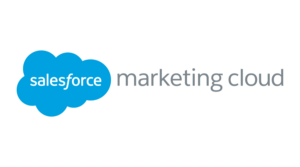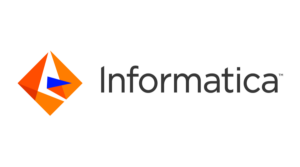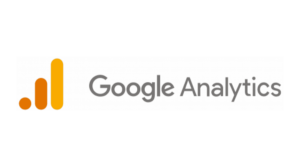5 Best Marketing Data Integration Tools To Check in 2026

Data is spread across multiple platforms and tools in today’s marketing landscape, which makes it difficult to gain a unified view of customer behavior and campaign performance. Therefore, seamless marketing data integration is critical for businesses to collect, consolidate, and analyze data from multiple sources. The right integration tools can help automate workflows, improve decision-making, and ultimately drive better marketing outcomes. In this blog, we look at some of the best tools you can use in integrating your marketing data, making it easier to derive actionable insights and optimize your efforts.
What is Marketing Data Integration?
Marketing data integration combines data from various marketing platforms, tools, and other channels into a unified system. This gives businesses a more coherent, holistic view of customer behavior, campaign performance, and marketing effectiveness. When businesses integrate data from social media, email marketing, CRM systems, or websites, they can make better-informed decisions, optimize strategies, and enhance the customer experience. Such data integration tools can automate the process, save time, and improve accuracy.
5 Best Marketing Data Integration Tools in 2026
Hevo Data
 Hevo Data is a no-code data integration platform that automates the process of moving data from multiple sources to destinations like databases such as MySQL and PostgreSQL, and data warehouses such as Snowflake and Google BigQuery. It enables seamless marketing data integration by providing real-time, automated pipelines without complicated setup.
Hevo Data is a no-code data integration platform that automates the process of moving data from multiple sources to destinations like databases such as MySQL and PostgreSQL, and data warehouses such as Snowflake and Google BigQuery. It enables seamless marketing data integration by providing real-time, automated pipelines without complicated setup.
Key Features:
- Real-Time Data Syncing: Offers real-time integration, ensuring that any marketing team has the latest data.
- No-Code Platform: This reduces the configuration process and is simple enough to allow non-technical users to set up their integrations.
- Wide Range of Connectors: Supports over 150+ data sources, including CRM, social media, and marketing platforms.
- Pricing: Hevo offers a 14-day free trial, with pricing starting from $239/month for the basic plan, depending on data volume and additional features.
Salesforce Marketing Cloud

Salesforce Marketing Cloud is a powerful marketing automation tool that enables businesses to personalize customers’ journeys across email, social media, and other digital channels. This will undoubtedly optimize marketing campaigns for better engagement across various levels.
Key Features:
- Email Marketing: Automates sending personalized email campaigns so that the customer receives the right and relevant content at the right time.
- Customer Journeys: They enable the design and automation of complex customer journeys that engage users across multiple touchpoints.
- Data Integration: It integrates well with CRM systems, so businesses can use customer data for personalized marketing.
- Pricing: It is custom-based on business needs, typically ranging from $ 1,250/month for the most basic package to costlier add-ons for more advanced features.
Dell Boomi

Dell Boomi is an iPaaS that enables businesses to integrate applications, data, and people. It provides cloud-based low-code solutions that automate all data workflows and give immediate access to numerous platforms for marketing data integration.
Key Features:
- Low-Code Platform: It is easy to make adjustments and deploy instantly without deep knowledge of technical details.
- Pre-built Connectors: Offers 200+ pre-built connectors to integrate most marketing tools and platforms, including email marketing and CRM.
- Real-Time Integration: Supports real-time data synchronization, ensuring the most up-to-date marketing insights.
Informatica PowerCenter

Informatica PowerCenter is a data integration tool that helps organizations improve data management by simplifying data movement across multiple systems, ensuring efficient marketing data flow. The different marketing platforms integrate with Informatica PowerCenter to ensure real-time data synchronization, supporting a data-driven marketing strategy.
Key Features:
- Advanced Data Transformation: It comprises robust features that enable marketing data transformation and cleaning before integration.
- Scalability: It handles large volumes of data, ensuring performance and smoothness as your marketing data grows.
- Comprehensive Connectivity: It offers connectors for a wide range of marketing tools and platforms, including CRM systems and email marketing tools
- Pricing: This depends on the scale and the deployment model and generally requires contacting them directly to obtain a custom quote.
Google Analytics

Google Analytics is regarded as one of the strongest tools for marketing data tracking across websites and applications, for analysis, and for developing insights from customer data to understand behavior, performance, and engagement, which form the basis for deciding a customer’s marketing approach with data.
Key Features
- Real-Time Reporting: It provides real-time tracking of website traffic and enables marketers to adjust their marketing strategies immediately.
- Customizable Dashboards: Integrates simple yet customizable dashboards to visualize marketing metrics and KPIs.
- Google Ads: Easily integrates with Google Ads. Hence, users can monitor and optimize the paid search campaign.
Also Read: Marketing Automation Platforms
Key Features of Marketing Data Integration
Centralized Data Hub
Integration tools consolidate multiple marketing channels into a single location, forming a unified view of all related activities.
Real-Time Data Syncing
Many marketing data integration tools assist and collaborate through real-time data syncing, thereby assuring the same consistency and correctness throughout the system and producing effective reports or insights.
Data Quality and Cleaning
These tools help with cleaning and correcting integrated data by removing duplicate values, filling in missing values, and ensuring proper formatting for the given text.
Automation
Marketing data integration tools automatically generate reports and collect data; hence, marketers can focus on strategies rather than manual effort and the errors that follow.
Customizable Reporting
These tools allow organizations to prepare separate reports on business-specific marketing objectives, allowing them to measure campaign performance.
Types of Marketing Data Integration
ETL (Extract, Transform, Load)
It refers to the process of extracting data from varied sources, cleaning and formatting it, and then loading it into a system. ETL tools will fit business needs, and customer-related data should be cleaned and transformed for storage.
ELT (Extract, Load, Transform)
In ELT, data is first loaded into the target system, enabling flexible data transformation and processing. This approach is well-suited for scenarios where the specific data transformations may evolve.
API Data Integration
APIs enable seamless interaction between different software systems, such as CRM or eCommerce platforms, by facilitating real-time data synchronization. This ensures that marketing tools can access up-to-date customer insights, leading to more informed and effective decision-making.
Data Virtualization & Federation
Data virtualization is a technique for creating a virtual view of data from multiple sources without physically moving data. It is another technique of integrating data into a unified system, but it requires physical movement of data. Both provide a single view of data from multiple platforms.
Middleware Integration
Middleware tools act as a bridge between applications, continuously feeding data from other applications and feeding it across multiple applications, thereby allowing customers to keep data properly in sync with systems like CRM and ERP, which may help marketing teams understand what they did.
Factors to Consider When Choosing a Marketing Data Integration Tool
Ease of Use
Choose a tool that is so intuitive and easy to use that your team can start implementing it with minimal or no learning. A simplified interface reduces training time, thereby accelerating learning.
Compatibility across existing tools and systems
Find an integration solution capable of connecting properly with your platforms, CRM applications, and other software installed. This ability will make transactions easier and, in turn, reduce data duplication across machines.
Connectors to Multiple Sources
The tool should support a wide range of integrations with key marketing platforms, such as Google Ads, Facebook Ads, email marketing tools, CRM systems, and website analytics platforms. This way, you can centralize all your marketing data in one place for analysis.
Data Cleansing and Transformation
Seek a tool that natively cleans, standardizes, and transforms your data. This ensures that the data you’re using is clean, consistent, and ready for analysis, thereby enabling you to make more informed decisions.
Real-Time Data Processing
Real-time data syncing is required to get insights promptly. Look for a real-time tool that can process data, meaning that your marketing team is always working with the latest information.
Scalability
As your business grows, so will your data. Choose a tool that can scale to handle increasing volumes of data without sacrificing performance or reliability.
Visualization Capabilities
Choose tools with dashboards and reports to visualize key insights. This helps marketing teams easily understand and act on the data, facilitating quicker decision-making.
Security and Compliance
Marketing data often contains sensitive customer information. Ensure the tool you select adheres to robust security protocols and complies with data protection regulations such as GDPR.
Support and Customer Service
Good customer support is important for seamless operations. Ensure that the tool you choose has responsive and knowledgeable support teams to help resolve any issues or challenges you may face.
Benefits of Marketing Data Integration
Improved Decision-Making
Consolidating various marketing data channels provides a company with a unified view of its performance, enabling well-informed decisions.
Better Customer Insight
A collected marketing data set provides insights into customers’ behavior, preferences, and needs, enabling more targeted, individualized marketing campaigns.
More Efficiency
Automated collection and integration eliminate much of the manual effort put into marketing and save time.
Better ROI
An organization can accurately track campaign performance by using an integrated data set, enabling management to fine-tune the strategy for a good ROI.
Scalability
The marketers’ ability to scale up becomes easier by employing marketing data integration tools that automatically handle increased volume, enabling the business to grow without losing efficiency.
Also Read: Best Cross-Channel Marketing Tools
Challenges of Marketing Data Integration
Data Quality Problems
Poor-quality, dirty, inconsistent, out-of-date, or incomplete data spread across several platforms results in incorrect insights and poor decision-making. Ensuring high-quality, clean data is mostly a problem.
Complex Integration
Different marketing tools and platforms use incompatible data formats. Integration processes become very complex and take a long time.
Data Security and Privacy
It can be challenging to protect sensitive customer data when integrating marketing systems, especially in light of regulations such as GDPR.
Real-Time Data Syncing
Ensuring data is updated and synchronized in real-time across all platforms can be challenging. This would prove to be a significant issue for businesses relying on massive data volumes.
Real-Life Use Cases of Marketing Data Integration
Personalized Marketing Campaigns
A retail brand uses its CRM, email marketing software, and analytics from its website to deliver customers customized email offers. Resulting in improved engagement and sales.
Customer Journey Mapping
The travel company will collect data from social media, email, and its website to create a customer journey map. This way, they could reach the proper target audience at the right time with the right message.
Cross-Channel Campaign Management
An eCommerce brand uses a combined marketing data integration to gain insights into Google Ads, Facebook Ads, and CRM systems, enabling it to manage all campaigns on a single platform.
Data-Driven Decision Making
A SaaS company gathers data from marketing automation, website analytics, and CRM tools to analyze customer behavior. As a result, it optimizes its lead generation strategy to focus on more qualified leads.
Also Read: Best Data Visualization Tools
Conclusion
The integration of marketing data into an organization has a beneficial impact by consolidating information from different sources. Decisions become easier, customer experiences are enhanced, and the campaigns become more effective. Data silos and source integration are challenging, but the right tools and strategies solve them. Marketing data integration serves as a fundamental pillar of success, driving continuous growth through data-driven strategic focus. Implementing these solutions can help organizations stay competitive, foster customer loyalty, and drive measurable outcomes.
